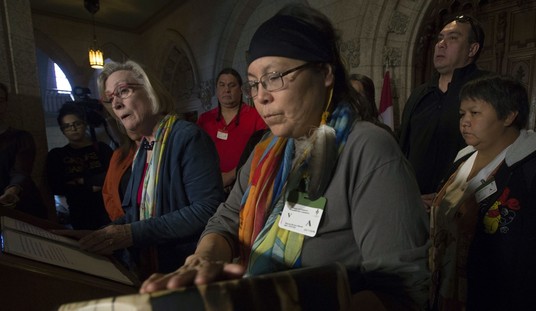A new federal labor rule would “ambush” business owners by allowing organizers to hold union elections with little notice — and worse, give workers little time to decide how to vote, Republican leaders in Congress say.
Small business groups and industry trade organizations also oppose the rule, finalized last year by the National Labor Relations Board, and are urging Congress to nix it before it takes effect in April. GOP leaders in the House and Senate have filed a resolution to do just that. The measure would scrap the new rule, and prevent the board from issuing another one like it.
Democrats and union organizers, however, say the rule will help streamline the election process and put an end to stalling tactics employed by corporations and other businesses in their efforts to stamp out unionization.
Representatives on both sides of the issue made their case last week during a hearing of the Senate Health, Employment, Labor and Pensions Committee.
“Vote Now, Understand Later”
“I refer to this as the ‘ambush election’ rule because it forces a union election before an employer has a chance to figure out what is going on,” Sen. Lamar Alexander (R-Tenn.), chairman of the committee, said in his opening statement.
He said elections, 91 percent of which are now held within two months of an election petition being filed, could be held as soon as 11 days after an employer is told about it.
But that’s not the worst of it, Alexander said.
“It is employees who stand to lose the most under this rule,” he said. “[They] will hear only half of the story about what unionizing will mean for them and their workplace.”
Employees will be asked to “vote now, understand later,” the senator explained.
In addition, he said, the rule chips away at workers’ privacy by allowing union organizers access to employees’ personal e-mail addresses, phone numbers, shift hours and job classifications.
Considering that the vast majority of union elections are now held within a “reasonable” 56 days, Alexander said, the rule “appears to be a solution in search of a problem.”
Murray: Defending Workers’ Voice No ‘Ambush’
But Democrats say Republicans are the ones making much ado about nothing.
The rule, they say, is simply an effort to modernize the elections process and protect workers’ rights.
Corporations and their legal teams too often “use loopholes … to delay a straight up or down vote,” said Sen. Patty Murray (D-Wash.), the ranking Democrat on the HELP committee. Murray slammed Republican backers of the resolution seeking to invalidate the rule, saying it shows where their true allegiances lie.
“Once again, my Republican colleagues are rushing to the defense of the corporations that have an interest in keeping wages low,” she said.
Murray defended the rule, and took offense at Alexander’s description of it as an “ambush” against businesses.
“A worker wanting to have a voice in their workplace is not an ‘ambush,’” she said. “It’s their right. [They] have the right to join a union [and] a right to vote in elections that are free from unnecessary delays and stall tactics.”
By allowing organizers to file forms electronically and access workers’ basic contact information, the rule will make the process much less cumbersome, not to mention in line with today’s technology.
“Using cell phones and e-mail to transmit information in 2015 is just common sense,” Murray said.
New Labor Rule Seems to Favor Union Organizers at the Expense of Employers
That may be, opponents to the rule say, but the new measure goes well beyond that, “tipping the playing field,” in favor of union organizers, as Sen. Johnny Isakson (R-Ga.) argued.
Indeed, Charles I. Cohen, a labor law attorney and a former member of the National Labor Relations Board under President Bill Clinton, told the committee that the rule is a departure from the NLRB’s past practices.
In his 40 years of practice, he said, the rules handed down by the board have been balanced and fair.
“But this one transparently seeks to deprive law-abiding and non-games-playing employers of their right to communicate their views under,” Cohen said. “The entire employer community is presumed to be on the wrong side, standing ready to trample the rights of employees.”
Elizabeth Milito, senior counsel for the National Federation of Independent Businesses’ Small Business Legal Center, agreed.
Not only do most employers wish to work with employees to address their concerns, she said, most also are not flush with labor law attorneys — or the cash to hire one — to respond to union petitions at a moment’s notice. Most, in fact, are small business owners who work side by side with their employees.
Nearly half of all working Americans, Milito said, are employed by small businesses — most of which have fewer than 20 employees and gross sales of just $500,000. On top of that, she said, business owners have to contend with an ever-increasing list of laws and regulations governing employers.
“Today, small business owners contend with anti-discrimination laws, family, medical and other protected leave laws, wage and hour laws, privacy laws, workplace safety laws,” Milito said. “[And] they often struggle to decipher the mysteries of overlapping, sometimes even conflicting, federal, state and local laws.”
And most can’t afford attorneys or even human resources personnel to help them navigate those laws and regulations, she said. Allowing unions to hold elections with little notice to employers is patently unfair to small business owners who have neither the time nor the money to respond to an organizing petition in so short a time, she added. It’s also unfair to the workers, she argued, as it gives them little time to understand and weigh their options.
“Holding a union election in as little as [11 days] makes absolutely no sense unless the goal is to complicate the process and reduce the employee’s chance to make an informed decision,” Milito said.
Stalling Tactics
But another witness at the hearing disagreed, saying the process right now is stacked against workers.
“The system provides many opportunities for employers to delay the process,” said Caren P. Sencer, a lawyer whose firm works with unions and union members. “This puts enormous pressure on the union to agree to unreasonable demands from the employer.”
In addition, supporters of the rule say, employees are much less likely to vote to join a union the more time passes between a petition filing and an election. That, they say, gives companies an even bigger incentive to stall, hedge, dodge and delay the vote.
Besides, Sencer said, the fear that most elections will suddenly be held in a matter of days under the new rule is unwarranted. Right now, she said, the vast majority of election dates are agreed to between employers and union organizers. The rule’s new timetable will most often be employed in those cases where there is disagreement over an election date and a business begins to “unnecessarily delay” the process, she explained.
Sen. Al Franken (D-Minn.) said the rule doesn’t make any drastic changes, and simply gives workers a better chance to exercise their rights.
A former comedian and actor best known for his years on television’s Saturday Night Live, Franken spoke about the benefits he enjoyed from union membership.
“I’ve been a member of SAG and AFTRA for many years and I found them very helpful to me and to other members of those unions,” he said, referring to the Screen Actors Guild and the American Federation of Television and Radio Artists. The two unions merged to become SAG-AFTRA in 2012.
He said easing the organizing process may help boost union membership, which he says is crucial for the lower and middle classes.
“People who are in unions … tend to get paid a little more and have better benefits, health care, that kind of thing,” Franken said. “And as we’ve seen a lower and lower percentage of people covered by unions, we’ve also seen it coincide with this incredible inequality in income in this country. What the causation is exactly is hard to say, but I think there is a correlation.”
But Alexander held firm, saying that regardless of how one feels about unions, rushing an election, as he says the new rule will do, is detrimental to both workers and businesses.
And to help make his case, he quoted not a Republican like himself, but a Democrat.
“In 1959, Sen. John Kennedy warned against rushing employees into a [union] election,” he said. “As Kennedy said, ‘There should be at least a 30-day interval between the request for an election and the holding of the election, in which both parties can present their viewpoints.’”









Join the conversation as a VIP Member